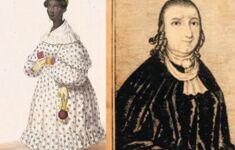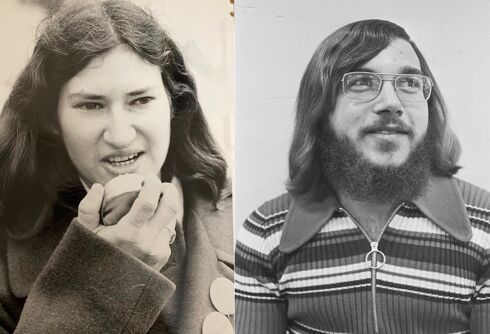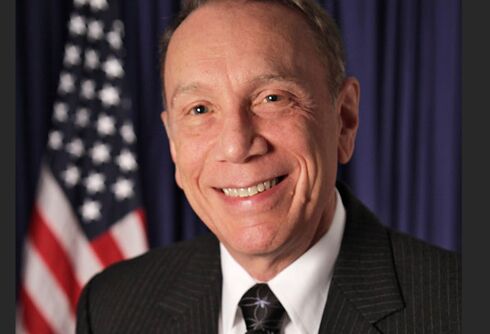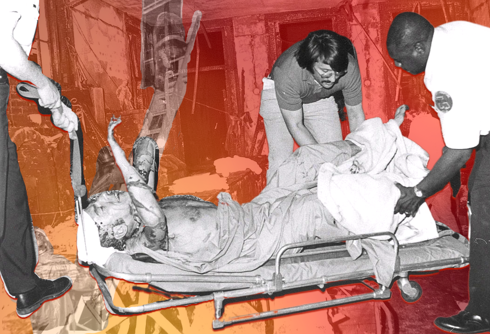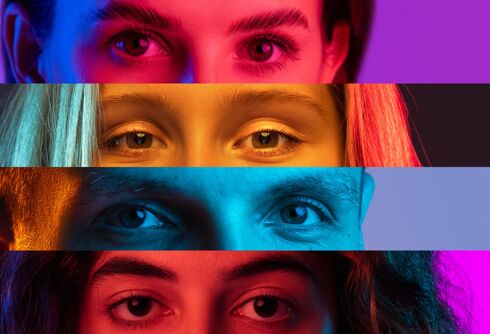I’ve lived most of my adulthood as a proud f****t in New York. But I decided to spend last summer in my native country, Colombia.
I didn’t return to reconnect with my roots. I had two American friends temporarily living there who suggested I join them. Since I came out, my queerness has always felt more prominent than sexuality – it’s my power. But the prospect of being a gay man in Latin America suddenly felt like kryptonite.
Related:
Trans is not a trend: 4 gender-nonconforming historical figures who dared to be themselves
The figures spotlighted here are only a drop in the ocean.
Although I was of course aware gay people were born worldwide, I didn’t consider gay rights an inevitable part of every country’s history. I whitewashed queer resistance because I was raised with enough privilege to believe the gay white man’s story could echo the woes and progress of an international community.
Never Miss a Beat
Subscribe to our newsletter to stay ahead of the latest LGBTQ+ political news and insights.
In other words, I never bothered to learn about LGBTQ+ history beyond US soil. When I arrived in the city of Medellin, Columbia, it surprised me to encounter my sexuality reflected so visibly in modern Latin culture, whether through slang, nightlife, or advocacy.
Soon, I would learn that Latin queer people had been fighting for acceptance long before the influence of America.
Medellin looked different than it used to. The gentrified streets of Poblado, the expat neighborhood where I was staying, resembled a new society. But it was easy to recognize my people.
I landed on the day of Medellin Pride entirely by accident. I didn’t even know it was a thing. Of course, the streets weren’t typically bursting with rainbow flags (more than 70,000 people attended), but Grindr indicated there were plenty of Colombian gay men year-round.
I was born in Bogotá, the capital, a year after Pablo Escobar died in 1993, so it would take time before my country’s reputation went beyond violence, political unrest, and cocaine. It still struggles with the chains of bad press, and knowing this, I should’ve been more open-minded to the fact that a machismo culture didn’t negate burgeoning gayness.
As a Colombian immigrant, it was ironic there was a time when I never set foot in the US, and yet its culture became my sole point of view. But technically, my queer identity existed before my newfound citizenship.
I’ve always felt different; I just wasn’t aware or informed about it. It made me think about how the LGBTQ+ equal rights movement is often used interchangeably with American history, but the majority of queer people in the world don’t even speak English.
I thought I understood the history behind my f****try, the people who paved the way for my audacity. I celebrated the anniversary of the Stonewall Riots for liberating my people. I cheered about the US legalizing gay marriage as if it happened worldwide.
Colombia legalized gay marriage in 2016, a year after the US. If you had dropped this fact to me in the past, I would’ve praised the latter for setting the example, as if the ripples of visibility could happen overnight.
Not to mention, America is hardly the pioneer of social issues. Argentina legalized gay marriage in 2010 and Brazil in 2013. The queer revolution has been happening in these nations since the inception of Latin mankind.
And yet LGBTQ+ history is remembered through the lens of the gay white man. And unfortunately, growing up with my heritage so entwined with the nature of ‘Spanglish’ in Miami made me believe he represented me.
The Stonewall Riots happened in 1969 and were heard worldwide, but it wasn’t the beginning of resilience in other countries. For example, Argentinian gays created Nuestro Mundo (‘Our World’) in 1967, considered South America’s first public homosexual organization.
In Brazil, the gay newspaper Lampião (‘The Lamp’) came to fruition in 1978. And Mexico formed the liberation movement The Frente de Liberación Homosexual (Homosexual Liberation) in 1971.
Columbia’s first gay organization, the Movimiento de Liberación Homosexual de Colombia (Colombia’s Homosexual Liberation Movement), was founded in Bogotá in 1976 by Manuel Velandia Mora.
Not that visibility in other nations didn’t serve as a means for empowerment, but Colombia’s movement was based on León Zuleta’s idea from an issue he had edited in El Otro magazine, a gay newspaper in Medellín.
For so long, I felt my identity was saved by moving to New York. But I actually found acceptance when I dared to claim my queerness, saving myself. The city might be an international hub for the LGBTQ+ community, but it was not the movement’s birthplace.
Every country has beloved historical queer leaders, triumphs, and tragedies that deserve to be remembered by their people.
Equal rights isn’t a game of monkey see, monkey do. It has required selfless local bravery and sacrifice within communities across the world, determined to set the next generation free.
Gayness and Latinidad are social classifications that do not run parallel to one another. They’re merged for folks who embody them. You can’t have Hispanic Heritage Month without LGBTQ History Month.
Intersectionality is a relatively new term, a privilege I’ve taken for granted. But as I spent more time with various Latin American LGBTQ+ communities as a travel writer, I saw firsthand the fingerprints of the countless queer people that paved the way.
I’ll always be proud to be a f****t, but I was a maricón first.




